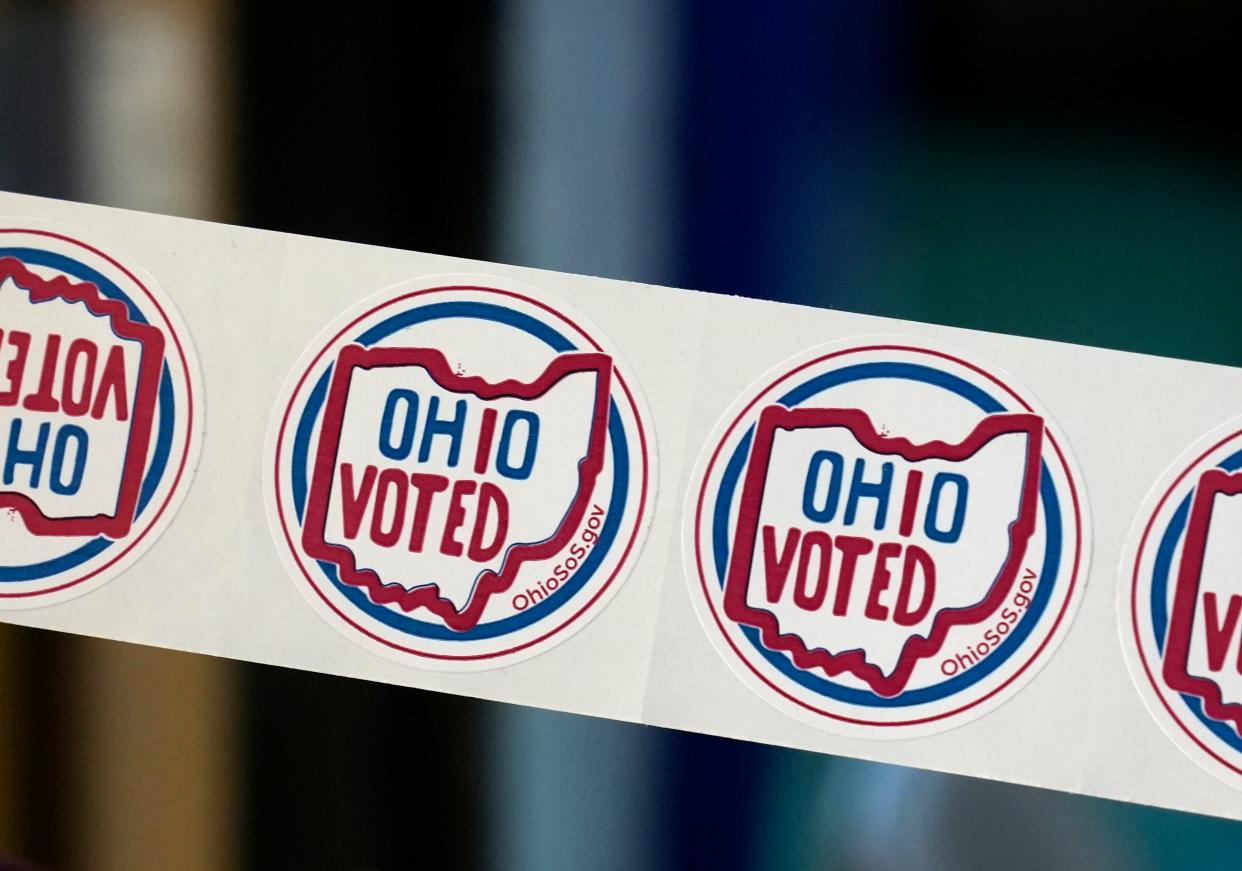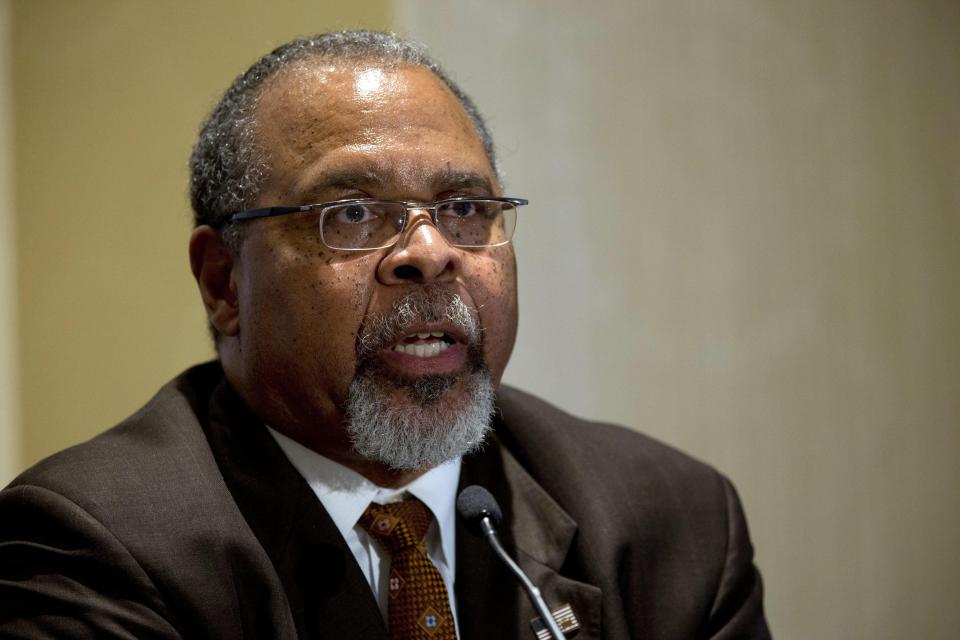Ken Blackwell: Voter roll bill would increase trust in Ohio’s elections

- Oops!Something went wrong.Please try again later.
Ken Blackwell is the distinguished fellow for human rights and constitutional governance at the Family Research Council. He is a member of the board of directors for the Public Interest Legal Foundation and was the Ohio secretary of state from 1999 to 2007.
Ohio used to be one of the worst states at maintaining its voter rolls.
In fact, three Ohio counties even had more people registered to vote than the total voting age population living in these counties. The U.S. Supreme Court even found voter ID to be constitutional because of bad voter rolls like seen in Ohio.
This all changed when then Ohio Secretary of State Jon Husted, now our lieutenant governor, came into office.
He entered a settlement agreement to institute voter list maintenance procedures that would allow Ohio to keep accurate and up to date voter rolls. These procedures included participating in the State and Territorial Exchange of Vital Events (STEVE) to obtain information when an Ohioan dies out of state and working with Ohio Motor Vehicles to identify voters who move.
Opinion:Let's be honest about bailout scandal that led to conviction of 'corrupt genesis'
Furthermore, Husted made the voter roll available online. This made Ohio elections one of, if not the most, transparent run election systems in the country.
Fast forward to 2023, these reforms are still working. Ohio has some of the cleanest voter rolls in the country. Just this year, Secretary of State Frank LaRose announced the removal of more than 124,000 outdated entries from the Ohio voter roll.

Now, Ohio is considering landmark legislation that would modernize Ohio’s voter roll data and increase election transparency for good.
Senate Bill 71 would create a standardized uniform format for counties to follow when collecting election data. This will allow for post-election audits to be conducted more effectively. Currently, counties have different formats and terms they use for collecting and publishing election data. Requiring a uniform format will empower Ohioans with accurate data and allow us to look back on our elections to ensure that the voice of the people was heard.
This bill would also enshrine into law that the Ohio voter roll is free to access.
This may not seem important, but it is. Some state election officials try to hide the voter roll from the public. For instance, Illinois denied the Public Interest Legal Foundation access to their voter roll entirely. They had to sue to obtain a copy.
Other states charge more than $5,000 to get access to the voter roll. The easy access that Ohio provides its rare.
Professor:'We can’t take this lying down.' Draconian bill aimed at OSU, other colleges
Moreover, the voter roll is the most essential election integrity document.
It tells election officials who is eligible to vote. By making the voter roll easily available to the public at no cost, it allows Ohioans to hold our election officials accountable. It allows people to check and see if their deceased relative is on the voter roll or listed at an old address.
Not only would this bill ensure that the voter roll is available online free of charge, it also would provide even more information in the voter roll than is currently available.
The voter roll would now contain full date of birth. This is an essential detail for voter list maintenance. For instance, say John Smith and John Smith Jr. live at the same address. This would appear to be one person registered twice at the same address. However, with the year of birth, it becomes apparent that these are in fact two different people.
Ohio needs Senate Bill 71. This bill will make Ohio a leader in transparency in elections.
There is a reason Ohioans have confidence in our elections. In 2020 and 2022, Ohio was one of the first states to have its results in. It has a history of transparent and effective secretaries of state.
With this bill, confidence and trust in Ohio’s elections will increase even more. A rarity, at a time, when many states election processes are under attack for irregularities, delays, and lack of transparency.
Ken Blackwell is the distinguished fellow for human rights and constitutional governance at the Family Research Council. He is a member of the board of directors for the Public Interest Legal Foundation and was the Ohio secretary of state from 1999 to 2007.
Get more political analysis by listening to the Ohio Politics Explained podcast
This article originally appeared on The Columbus Dispatch: What is Senate Bill 71 and what impact would it have on Ohio elections?

